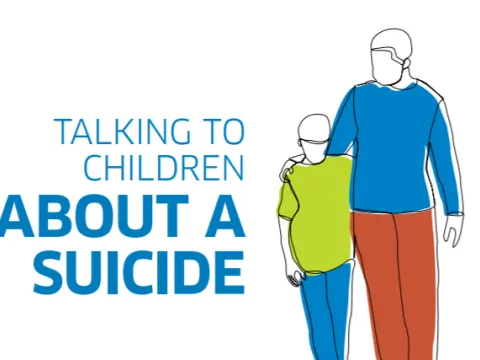If your child is at immediate risk—if they have done something to try and kill themselves or they are threatening to do so—call 911 or go to your local hospital’s emergency room.
If your child is thinking about ending their own life, or needs someone to talk to about suicidal thoughts or ideas:
- Call 1-800-SUICIDE (1-800-784-2433) for the BC Suicide Prevention and Intervention Line. Available in over 140 languages using a language service.
- Call 1-800-588-8717 for the BC KUU-US Indigenous Crisis and Support Line.
- Call or text 988 for the National Suicide Crisis Helpline. Available in English and French.
Suicide is not an easy subject to talk about and it can be very difficult to learn that a loved one is struggling with thoughts of suicide, particularly when it’s a child or youth in your life. While suicide can seem scary and overwhelming, it’s helpful to remember it’s not shameful or unusual for families or communities to experience. If you or someone in your life is having thoughts of suicide, you are not alone.
In most cases, having thoughts of suicide is not about wanting to die; it is about wanting the pain to stop. When a person is having thoughts of suicide, they are likely feeling so much emotional pain they are unable to see other options. Often, they feel they are a burden to others, and are filled with a sense of worthlessness, self-hatred, rejection or hopelessness. While they may not be conscious of it, people who are struggling with suicide are trying to let others know they need help and are looking for other options instead of suicide.
While most children and youth who have thoughts of suicide don’t act on them, it’s important to take all thoughts of suicide seriously. It’s not useful to try to determine whether someone’s thoughts of suicide are “real”. It is also not helpful to disregard thoughts of suicide as ‘manipulative’ or ‘just a cry for help’. Take this as an opportunity to recognize that they are struggling, and an opportunity to access more support.
A person can have different reasons for having thoughts of suicide, and these may change over time. It is important to remember:
- suicide affects children and youth from all social, economic and cultural backgrounds
- it is complex and no single factor causes someone to think about suicide
- in many cases, thoughts of suicide are linked to other mental health challenges, such as depression and anxiety
- there is no one type of person who thinks about suicide and parents/caregivers are not to blame
- talking about suicide openly and social connection are key to prevention
Suicidal thoughts can happen once in a while or regularly over a long period of time. People who get through periods of suicidal thinking say that talking openly about their thoughts was helpful, as well as being able to connect with resources that helped them deal with the underlying issues.




